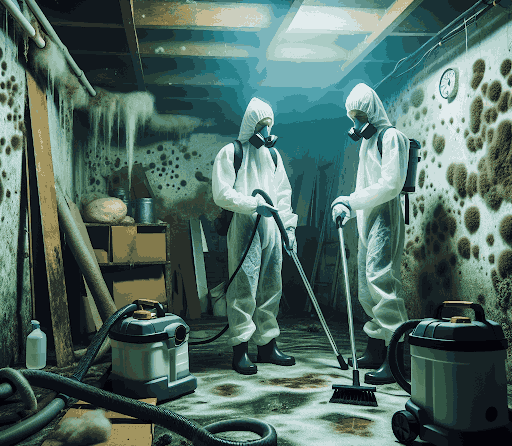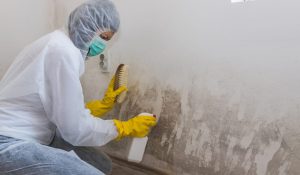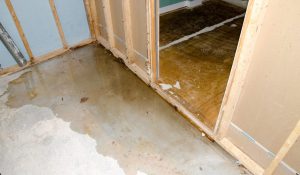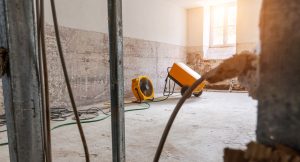
Mould can be a silent intruder in your home or business, causing health risks and property damage.
Choosing the right mould remediation specialist is crucial to effectively address this issue. But how do you make the right choice?
This guide aims to provide you with a comprehensive understanding of what to consider. From qualifications to costs, we’ll cover it all. Whether you’re a homeowner, property manager, or business owner in Sydney, this guide will help you navigate the process of selecting a mould remediation specialist.
Understanding Mould and Its Risks
Mould is a type of fungus that thrives in damp environments. It can grow on various surfaces, including walls, floors, and ceilings.
When left unchecked, mould can cause significant property damage. It can also lead to health issues, especially for those with allergies or respiratory conditions.
Understanding the risks associated with mould is the first step towards effective remediation.
What is Mould Remediation?
Mould remediation is more than just removal. It’s a comprehensive process aimed at addressing the mould issue at its root.
This process involves identifying the source of the mould, containing its spread, and cleaning up the affected areas. It also includes taking measures to prevent future mould growth.
Choosing a mould remediation specialist ensures this process is carried out effectively and safely.
Health Implications of Mould Exposure
Exposure to mould can lead to various health issues. These range from minor allergic reactions to serious respiratory problems.
Symptoms can include sneezing, coughing, skin irritation, and even asthma attacks in severe cases. Those with weakened immune systems are particularly at risk.
Understanding these health implications underscores the importance of prompt and professional mould remediation.
Signs You Need a Mould Remediation Specialist
Mould is not always visible to the naked eye. However, there are signs that can indicate its presence in your property.
One common sign is a persistent musty smell. This is often the first indication of a mould problem. If you notice such an odor, it’s advisable to seek professional help.
Physical symptoms such as allergies, respiratory issues, or unexplained health problems can also suggest mould presence. If these symptoms persist, especially when you’re in the property, it’s time to call a mould remediation specialist.
How to Identify Qualified Mould Specialists
Choosing the right mould remediation specialist is crucial. It’s not just about removing the mould, but also preventing its recurrence.
Look for a specialist who is certified and experienced. They should have a proven track record in mould remediation.
Check their reviews and references. Past clients’ experiences can give you a good idea of their work quality.
Also, consider their approach to mould remediation. They should not only focus on removing visible mould but also address the underlying issues causing mould growth.
Here are some key factors to consider:
- Certification and experience
- Positive reviews and references
- Comprehensive mould remediation approach
- Proper insurance and licensing
- Clear communication and customer service
Certifications and Experience
Certification is a key factor when choosing a mould remediation specialist. It shows that the specialist has undergone rigorous training and meets industry standards.
Experience is equally important. An experienced specialist will have dealt with various mould situations and will know the best approach for your specific case.
Remember, mould remediation is not a one-size-fits-all process. It requires a tailored approach based on the property’s specific conditions.
Questions to Ask Before Hiring
Before hiring a mould remediation specialist, it’s important to ask the right questions. This will help you understand their process and set your expectations.
Here are some questions you should ask:
- What is your process for mould remediation?
- Do you provide a detailed remediation plan?
- How do you prevent cross-contamination during remediation?
- What measures do you take for safety and compliance with local regulations?
- Do you provide a warranty or guarantee on your services?
The Mould Remediation Process
The mould remediation process involves several steps. First, the specialist will conduct a thorough inspection to identify the extent of the mould problem.
Next, they will contain the affected area to prevent cross-contamination. This is crucial to prevent the spread of mould spores to other parts of the property.
Finally, they will remove the mould and treat the area to prevent future growth. This may involve removing and replacing affected materials, cleaning and disinfecting the area, and addressing the source of moisture.
What to Expect During Remediation
During the remediation process, the specialist will use professional equipment and techniques. This may include air scrubbers, HEPA vacuums, and antimicrobial treatments.
They should also follow safety protocols to protect both the remediation team and the property occupants. This includes using personal protective equipment (PPE) and ensuring proper ventilation.
After the remediation, the specialist should conduct a post-remediation verification. This is to ensure that the mould has been effectively removed and the indoor air quality has improved.
Costs and Considerations
The cost of mould remediation can vary greatly depending on the extent of the mould problem and the size of the affected area. It’s important to get a detailed quote from the specialist before the work begins.
Keep in mind that the cheapest quote may not always be the best option. It’s crucial to consider the specialist’s experience, certifications, and the quality of their work.
Also, be aware that some costs may not be included in the initial quote. These could include the cost of post-remediation verification or any necessary repairs or replacements.
Understanding the Costs
The cost of mould remediation typically includes the inspection, containment, removal, and treatment of the mould. It may also include the cost of any necessary repairs or replacements.
Some specialists may charge extra for post-remediation verification or air quality testing. It’s important to ask about these potential additional costs upfront.
Remember, the cost of not addressing a mould problem can be much higher in the long run. This could include health issues, property damage, and decreased property value.
The Value of a Warranty or Guarantee
A warranty or guarantee on mould remediation services can provide peace of mind. It shows that the specialist stands behind their work.
If mould returns within the warranty period, the specialist should address the issue at no additional cost. This can be a significant factor to consider when choosing a mould remediation specialist.
Preventing Future Mould Growth
Once the mould remediation process is complete, it’s crucial to take steps to prevent future mould growth. This often involves addressing the source of moisture that led to the mould problem in the first place.
Here are some tips to help prevent future mould growth:
- Regularly inspect your property for leaks or moisture issues.
- Ensure your property is properly ventilated.
- Use a dehumidifier in areas prone to high humidity.
- Regularly clean and dry wet areas, such as bathrooms and kitchens.
Moisture Control and Prevention Tips
Controlling moisture levels in your property is key to preventing mould growth. This can be achieved through proper ventilation, especially in high-moisture areas like bathrooms and kitchens.
Regular maintenance and inspections can also help identify potential moisture problems before they lead to mould growth. This includes checking for leaks, condensation, and water damage.
Lastly, consider investing in a dehumidifier or air purifier. These can help maintain a healthy indoor environment and prevent mould growth by reducing humidity levels and improving air quality.
Conclusion
Choosing the right mould remediation specialist is crucial to effectively address mould issues and prevent future growth. By considering the factors outlined in this guide, you can ensure you’re hiring a competent, experienced professional.
Remember, addressing mould promptly and effectively can protect your property’s value and the health of its occupants. Don’t hesitate to seek professional help when dealing with mould.



